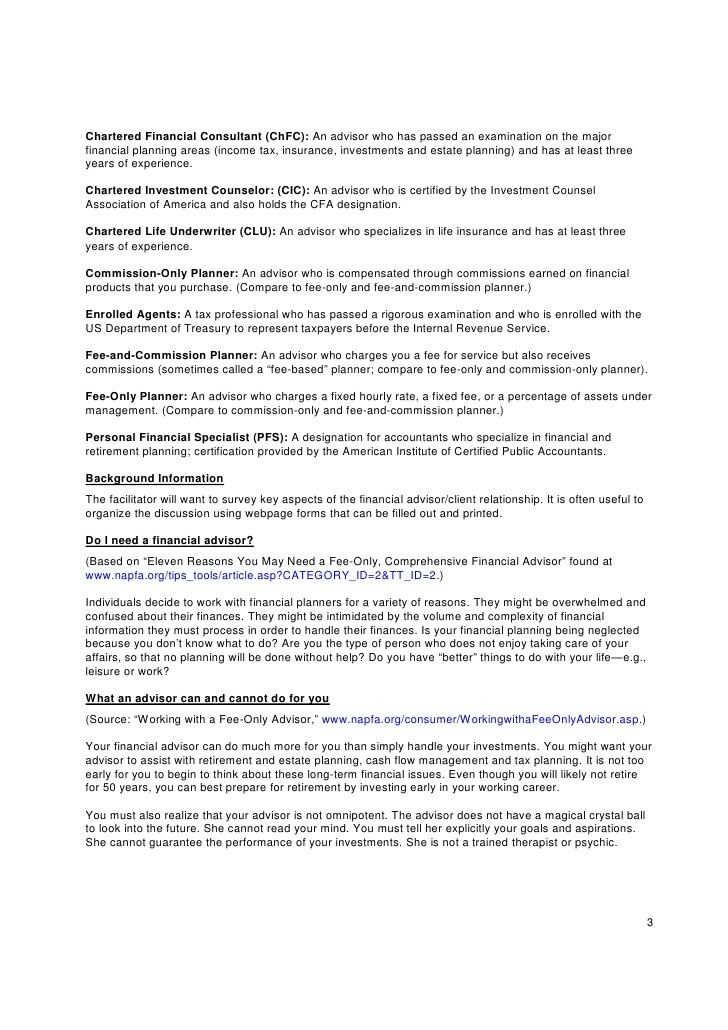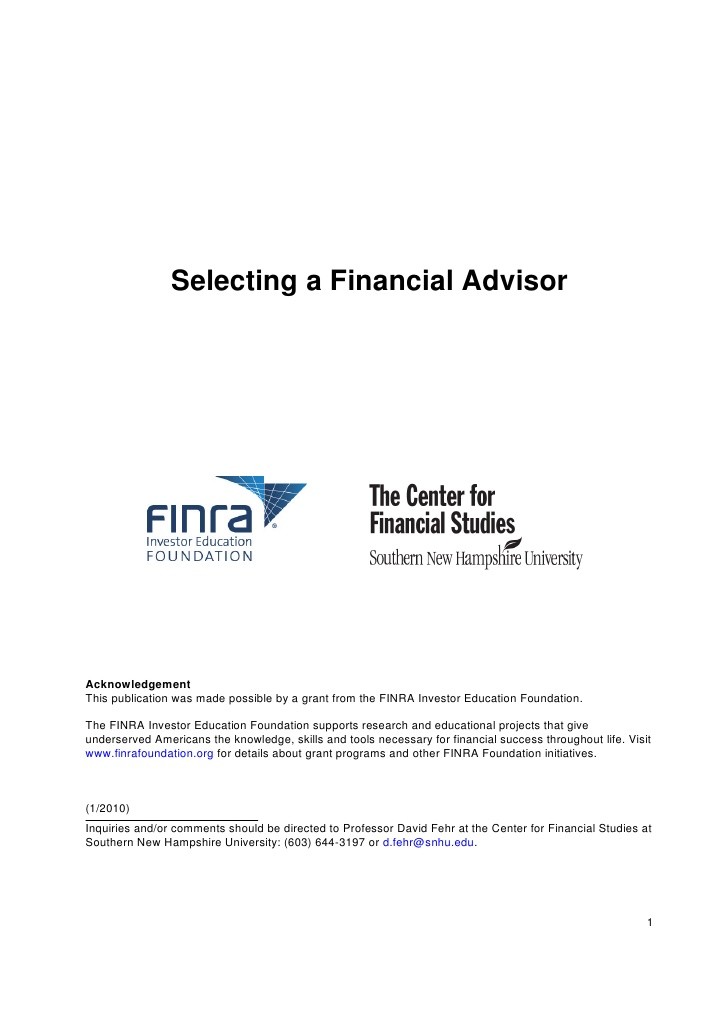4 Questions to Ask When Evaluating a Financial PlannerKiplinger
Post on: 16 Март, 2015 No Comment

Don’t leave an introductory meeting with a financial planner without learning these four things.
You’ve identified a couple of planners who might be a good match. But just as you should never buy a house without close inspection, don’t hire a financial professional just on location and appearance. Nearly all engagements with a planner or an investment adviser take a while to get going anyway, starting with an initial meeting to trade pleasantries, see the setup, and describe your issues. This is valuable time.Many planners have quit merely selling themselves during these opening meet-and-greets, and they now resolve to be all ears. They’re trying to sense if you are levelheaded or if you expect miracles. If you say, even in jest, that “I want to have $1 million and no debt in five years” when there’s no chance of achieving that without winning a PowerBall jackpot, you’re wasting everyone’s time. That’s why a planner will often ask you to fill out a biographical questionnaire and bring it to the first meeting. He or she will learn the outlines of your situation and if you merely need reassurance or a total overhaul. Some planners’ sites suggest questions they would ask if they were on the other side of their own table. Here are four we think you should be asking :
1. What are your qualifications? Sure, get details on diplomas and certificates, but determine if a planner’s experience and background also qualify him or her to help in your particular situations. If your concerns are mainly about fixing shrunken investments, a planner with a background in finance is more appropriate than an expert at retirement-income distribution plans who rarely works with portfolios. Let’s face it: With the markets and credit still jittery, specific skills and experiences matter. There are brilliant generalists and mediocre specialists, and the ideal approach is to have different people for different kinds of problems.
2. Who are your other clients? If you’re 30 and the bulk of a planner’s clientele are in their sixties, will this relationship work? Or, if you’re self-employed and looking for guidance in setting up and managing your own retirement plan, a planner who mainly advises executives of major companies might not be ideal. But then again, maybe he or she has a partner or an associate who does specialize in working with business owners and maybe even used to be one.

3. How and how much do I pay for your services? This is not taboo, and it’s not at all rude to ask. The old line between fees and commissions has blurred so much that you can count 20 or more ways to pay for advice and investment management. And rates are rising. Many top planners are so in demand that they charge more than $200 an hour, including $35 for a (scheduled) ten-minute phone call. Or they’ll propose an annual retainer arrangement, where, say, $3,000 gets you quarterly face-to-face consultations and a detailed financial plan to be revised once a year.
4. Are you independent? Planners and advisers who work for big organizations, such as Wells Fargo and Ameriprise, can be as candid and helpful as any independent — and they have access to better computer systems and periodic investor reports. But the same guy may be strongly inclined (or encouraged by the company) to recommend in-house funds, loans and mortgages and other products. And that’s not only because of sales commissions; it’s the universal tendency to favor what you know and what your boss likes. Vanguard has no commissions and low fees, but its planners usually prescribe the company’s own funds and ETFs.














